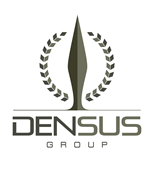Risks come in many forms: financial, reputational, operational, physical to name but four. Our understanding of risk as integrated across these and other factors enables Densus to provide comprehensive assessments of the complete risks to an organization or project. Equally able to examine a Fortune 500 company’s risk and explaining the stock price implications of security weaknesses, or assessing the risks to a government investing development funds in a client nation and seeking to understand the prospects for achieving their goals, our unique methodologies and combination of perspectives ensures not only added value, but the delivery of systems that use risk as an effective decision making tool, not a series of vertical 'risk' structures.
At Densus risk is an important component of the decision-making process, not a stand-alone discipline. Indeed understanding what risk and uncertainty are, the dimensions along which they act and how these affect the strategic vision and immediate tasks are critical to success. For it is not only our clients’ success that is our goal, but their efficient success, where only the minimum resources – be that time, personnel or cash – must be committed to both achieve the goal and protect against failure.
At Densus we see risk as likelihood – the chance of an effect – occurring. Effects may be positive or negative, and while we can anticipate all effects, it is impossible to anticipate all causes .
Likewise the scale of impact of any single effect is as variable as the likelihood of any particular effect, creating a three-dimensional problem set that must be properly understood before it can be used to drive decision-making.
Risk is not linear; any threat will have impacts that affect as a minimum the following dimensions:
Operational (the ability to achieve tasks)
Physical (personnel and infrastructure)
Financial and other Resources
Reputational (including political)
Understanding risk as both multi-dimensional and as a decision-making tool rather than a stand-alone discipline enables Densus to structure our assessments to drive cost benefit analyses and decision-making formats; a cost-benefit analysis is, after all, simply a calculation of the cost of taking a particular measure or measures in exchange for a given outcome. The critical component is weighing up the full costs along all dimensions, not simply the cash cost.
Risk must be used for both positive and negative means – to neglect the positive means surrendering value that may be won.

